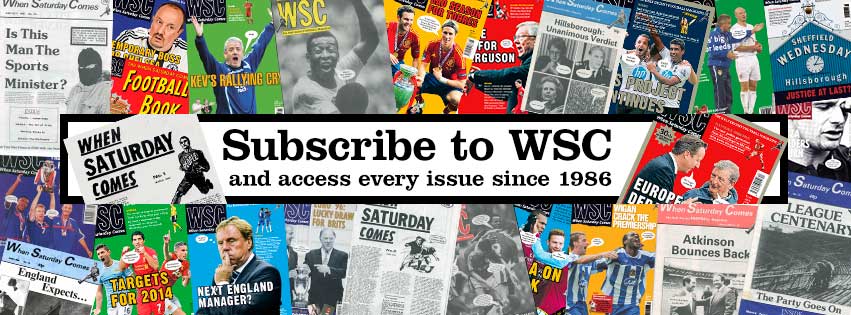The bookmaker’s garish sponsorship of a short-lived Huddersfield Town kit got them the publicity they wanted, as the latest example of how betting has embedded itself in football
14 August ~ “Mischievous” and ”irreverent” are words commonly used to describe the various advertising campaigns run by the bookmaker Paddy Power. These are intended as compliments even when the company has got into trouble. As they did earlier this year when the Advertising Standards Authority (ASA) banned their TV commercials promoting a rewards scheme for regular customers using the tag “Loyalty gets you nowhere, live for rewards”. The film featured Ryan Giggs’s brother, Rhodri, setting out the various ways in which loyalty is overrated. The brothers haven’t spoken to each other since 2011 when Ryan’s long-running affair with Rhodri’s then wife was reported in the tabloids. That someone is prepared to joke publicly about their own humiliation is a matter for them but the tone of the commercial was smug and derisive.
A few months on and Paddy Power have been in the news for another football-related enterprise that reeks of self-congratulation. In mid-July they revealed a first ever football shirt sponsorship, of Huddersfield Town. The shirts, subsequently worn in a friendly against Rochdale, featured Paddy Power’s name in a broad diagonal sash covering an area far bigger than the 250 square centimetres allowed under FA rules. After two days of widespread criticism, it was announced the real first-team shirts would be plain blue and white stripes with no logos, the sash strip being auctioned for charity. A promotional film explained that this was part of a “Save Our Shirt” initiative, planned several months in advance – Newport, Southend and Motherwell also signed up to a logo-less Paddy Power deal towards the end of July. “Our tagline is ‘Enough of the Nonsense’ and we’re calling bullshit on football sponsorship generally,” the firm’s PR head Lee Price told Marketing Week. The torrent of publicity generated by the fake shirts would nonetheless suggest that bullshit has its uses.
Earlier this summer, the five largest bookmaking firms, including Paddy Power’s owners Flutter Entertainment, announced that they would contribute £100 million over the next four years to a fund to aid gambling addicts and promote “responsible betting”. According to a Gambling Commission report in 2018, there are around half a million people in the UK defined as “pathological gamblers”, only 9,000 of whom currently receive NHS treatment for their addiction. The funds to be directed at a growing problem are a fraction of the amounts generated by the gambling industry. One of the other big-five firms, Bet365, made a profit of £2.7 billion in 2018. The company’s founder, Denise Coates, is a member of the family that own Stoke City. They are one of 14 clubs in the Championship currently sponsored by betting companies, with another nine in the Premier League.
Betting has come to be seen as an integral part of the football experience and not just for spectators – people employed by clubs are forbidden from betting on matches but the rules are being breached regularly. In April, Paul Scholes admitted placing 140 bets over a two-year period while a director of Salford City (none of the matches involved his club) while last month Daniel Sturridge received a fine and a short ban from playing, both much less than the FA had requested, for passing on information used in bets by family members. One of Sturridge’s tip-offs concerned his own projected move to Sevilla in 2018, which ultimately failed to happen. Transfer rumours concocted on social media continue to be an easy way to make a quick profit. During the close season, a widely followed Twitter account claimed that Diego Costa was set to join Wolves. This rumour developed to the point that he was 1/4 on to move with some bookmakers. The website Sport Witness established this story was an invention based around a fake quote from a Brazilian news source but the bookmakers they contacted declined to remove the bet.
Soon there will be no televised betting adverts during live broadcasts of matches that start before 9pm. This “whistle to whistle” ban is a voluntary arrangement agreed by the main gambling companies. As with the responsible betting initiative, they are trying to maintain control over the way their constantly expanding industry is regulated. With the football authorities finally coming under sustained pressure to ban shirt sponsorship by gambling companies, Paddy Power’s recent activities look like pre-emptive action. There’s no virtue involved in the creation of sponsorship-free shirts – it’s just a slick bit of business.
This article first appeared in WSC 390, September 2019. Subscribers get free access to the complete WSC digital archive – you can find out more here
